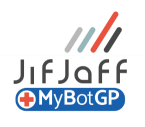In an era of rapid technological advancements, the lack of understanding and adoption of automation in primary care and healthcare pose significant risks. In this blog post, we will explore the dangers associated with underutilisation of automation technology, particularly considering the challenging realities of overworked healthcare professionals and the financial strain on the NHS. By shedding light on these concerns, we can emphasise the urgent need to embrace automation to improve patient care and the sustainability of the healthcare system.
The Perils of Misunderstanding:
The primary barrier to adopting automation in healthcare lies in the lack of understanding surrounding its potential and benefits. Many healthcare professionals are unaware of how automation can alleviate their burdens, streamline processes, and improve patient outcomes. This lack of awareness hinders progress and prevents realising technology’s full potential in transforming healthcare delivery.
Overworked Healthcare Professionals:
Healthcare professionals face immense pressure due to demanding workloads, long hours, and complex patient needs. The absence of automation exacerbates these challenges, as manual and repetitive tasks consume valuable time and energy. Without automation to alleviate administrative burdens, healthcare professionals are caught in a cycle of overwork and burnout.
Financial Strain on the NHS:
The NHS operates under financial constraints, with limited resources and growing demands for care. The failure to embrace automation further intensifies this strain. Automation has the potential to optimise resource allocation, reduce costs, and improve operational efficiency. However, the lack of understanding and adoption of automation inhibits the NHS’s ability to achieve these benefits, jeopardising its financial sustainability and hindering its ability to provide high-quality care to patients.
Disaster in the Making:
The consequences of not leveraging automation in primary care and healthcare are far-reaching. Inefficient processes, administrative bottlenecks, and the inability to keep pace with technological advancements impede progress and innovation. The absence of automation limits the ability to harness data analytics, remote patient monitoring, and AI-powered diagnostic tools that can revolutionise healthcare delivery. Failure to adopt these technologies due to a lack of understanding ultimately jeopardises patient safety, compromises timely interventions, and contributes to preventable errors.
The Urgent Need for Automation:
Embracing automation is an opportunity and a necessity for the NHS. It enables the healthcare system to optimise workflows, streamline administrative tasks, and enhance clinical decision-making. Automation technology can significantly reduce human error, improve efficiency, and free up valuable time for healthcare professionals to focus on delivering compassionate patient care. It is imperative for healthcare professionals, administrators, and policymakers to proactively educate themselves about automation’s potential and advocate for its integration into primary care settings.
The lack of understanding and adoption of automation in primary care and healthcare pose significant dangers to healthcare professionals, patients, and the NHS. By failing to leverage automation technology, we perpetuate overworked professionals, financial strain, and missed opportunities for innovation. Embracing automation is not only a solution to these challenges but also a pathway towards improved patient care, increased efficiency, and the long-term sustainability of the healthcare system. We must prioritise education and advocacy surrounding automation to unleash its potential for improving healthcare delivery in the UK.
JifJaff offers a fully managed and scalable solution for NHS Primary Care. Our team of experts handle all processes from implementation to maintenance, allowing you to focus on what matters most – your business! Our solution grows with you from practice, or large ICS with complex needs, we adapt to meet your requirements. With our comprehensive solutions, you can save time, reduce costs, and streamline your operations knowing you are fully supported.
